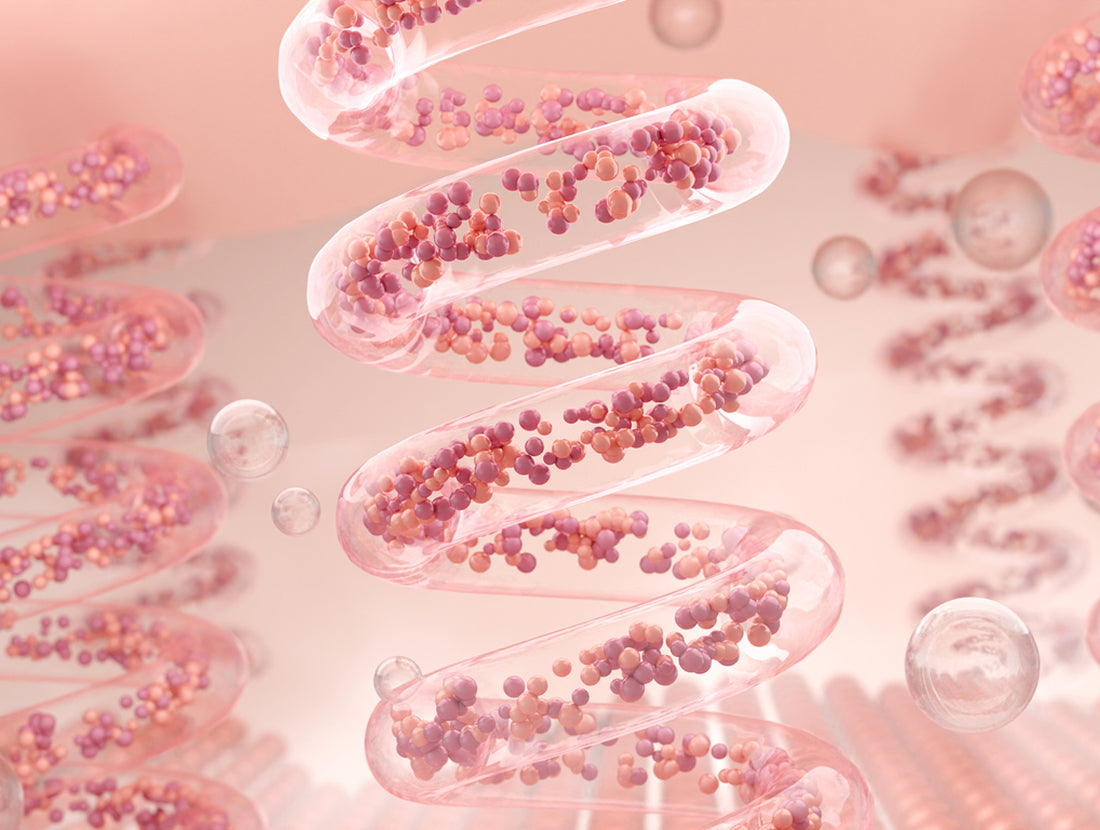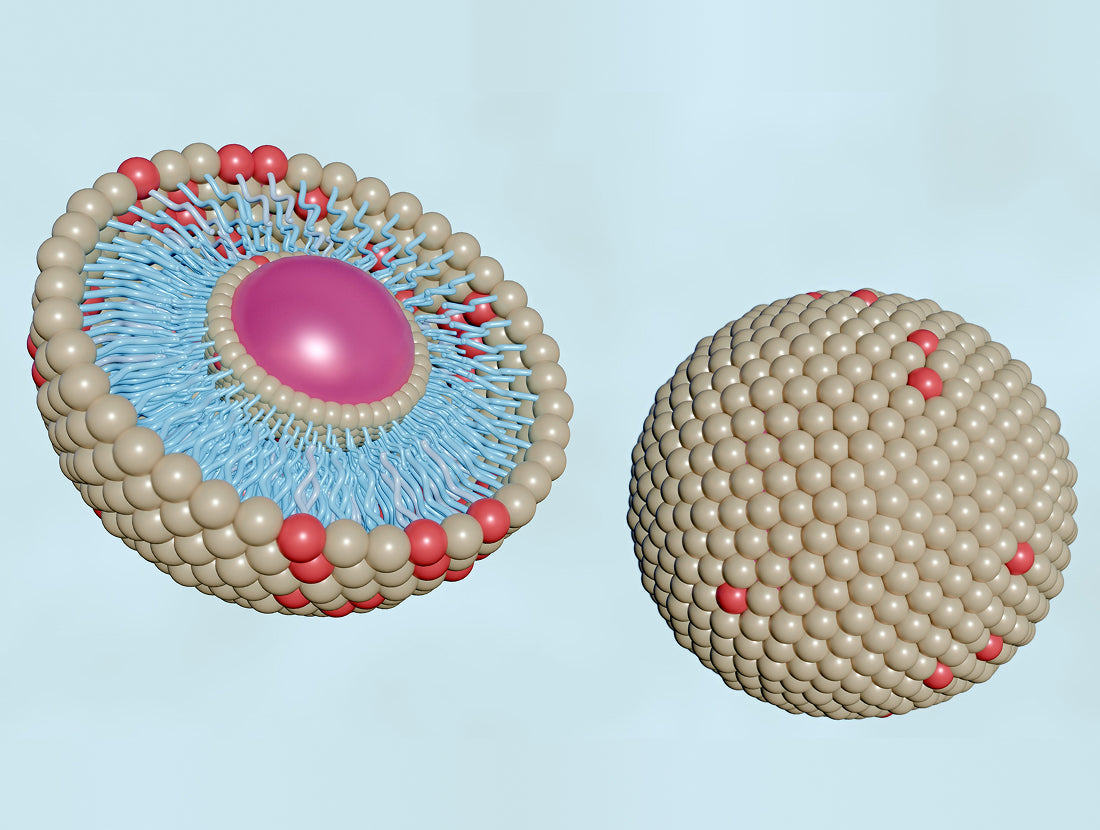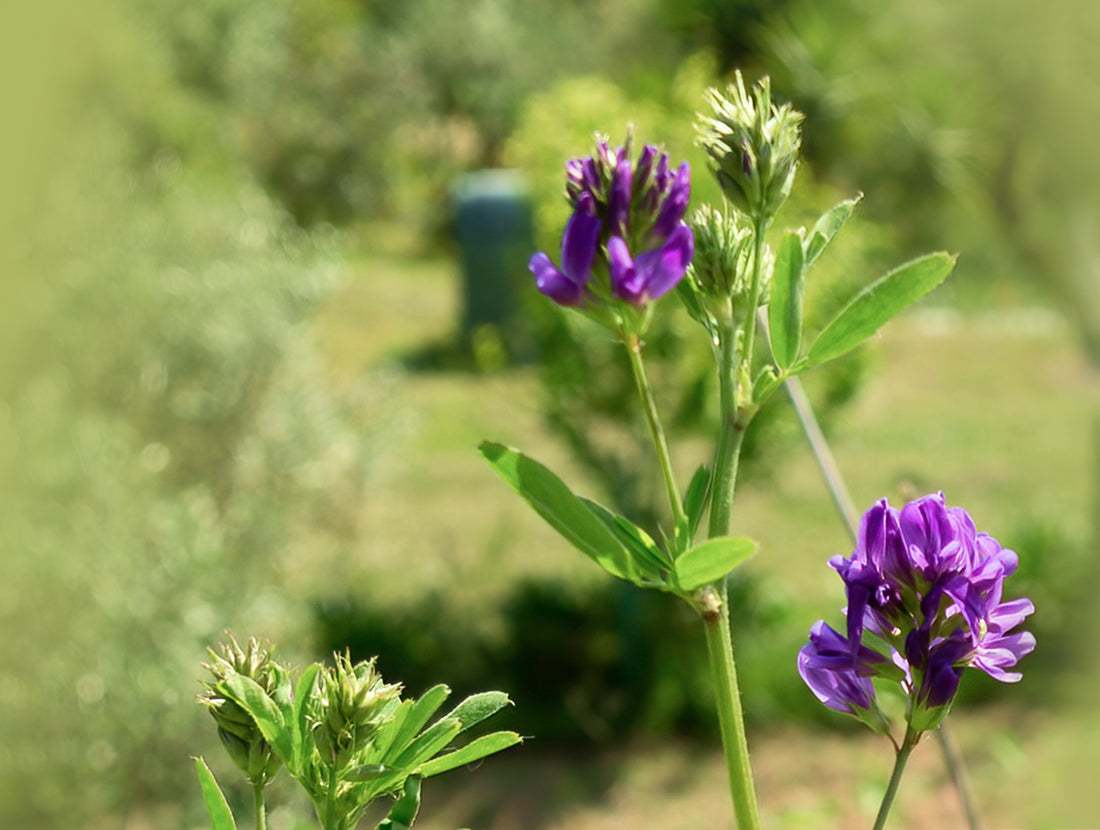If you’re at all familiar with skincare, you’ve definitely heard the word elastin thrown around as something to do with skin and aging, but a lot of people don’t know exactly what it is.
This article, as part of our Skincare Basics series, is here to explain what elastin is, the role it plays in skin health, and how with the right skincare, you can replenish your skin’s supply of it.
What is elastin?

Image credit: Howard Vindin / WikiMedia
Elastin is a naturally occurring, stretchable protein found throughout the body anywhere stretchiness is needed. It is
We most often hear about it in our skin (more on that soon), but it’s also a key part of tissue throughout the body’s stretchy parts including muscles, ligaments, the bladder, and lungs.
Read more about elastin at The Cleveland Clinic.
What does elastin do for your skin?

Image Credit: Mosterpiece / Getty Images
Elastin is one of the primary building blocks of your skin. When young and healthy, the elastin in our skin is twisted into long, stretchy fibers that span across the dermis and help skin stretch and bounce back to maintain its shape.
Together, with another protein, collagen, it forms a lattice-like structure in the dermis that supports your skin’s structure, making it strong and flexible.
As we age, the elastin fibers throughout our body slowly degrade and eventually can break, leading to signs of aging like sagging skin and wrinkles. These are a natural result of our skin’s elastin support system breaking down over time and reducing skin’s ability to stretch and bounce back.
One way to visualize the loss of elastin in your skin is to pinch an area of loose skin like on your elbow or the back of your hand. On a younger person like a child or someone in their 20s, the skin instantly bounces back, but with increased age, it will react more slowly.
How can you maintain elastin in the skin?

Image Credit: ttsz / Getty Images
The bad news about elastin in the skin is that we produce the bulk of our elastin early in life, with production peaking at about 3 months of age, and about half of it gone by age 70.
But, in good news, your body continues producing elastin throughout your life, albeit at a slower pace year after year. And, elastin is one of the most durable proteins in the human body, with a lifespan up 70 years, so the elastin you have can stay healthy a long time if you care for it.
Here are some things you can do to protect and rejuvenate the elastin in your skin:
-
Wear sunscreen - the sun’s powerful UV rays are one of the biggest contributors to elastin breakdown over time, so lather up the SPF whenever you’re outside.

Product recommendations: EltaMD UV Clear, Alastin Hydratint Pro Mineral Sunscreen, Revision Skincare Intellishade Original, Sente Even Tone Sunscreen.
-
Make healthy lifestyle changes - as we’ve discussed before in other blogs about anti-aging strategies, getting on a consistent sleep schedule makes a big difference in your skin’s health. Add to that other healthy changes like eating more nutrient dense foods, quitting smoking, limiting alcohol comsumption, and staying active, will reduce stress, improve blood flow, and help your skin be its best.
-
Eat & use antioxidant rich products - Free radicals that bind to our skin from air pollution are another big stressor on your skin’s elastin supply. You can help purge your body of free radicals by eating more anti-oxidant rich foods like blueberries and spinach, and help your skin defend itself with antioxidant serums.

Product recommendations: Alastin C-Radical Defense Antioxidant Serum, Revision Skincare C+ Correcting Complex, Flawless Canvas Free Radical Scavenger, Obagi Professional-C Serum 20%.
-
Stay hydrated - Water is essential for proper functioning in basically every system in the body, so make sure you’re drinking enough daily. Dehydrated skin is stressed skin, and stress kills elastin, so drink up. As an added boost to your skin’s hydration levels, use a hyaluronic acid serum to boost your skin’s ability to retain moisture.

Product recommendations: SkinMedica HA⁵® Hydra Collagen Replenish + Restore Hydrator, Ourself HA Replenishing Serum, Alastin HA Immerse, Sente Hydrate+ Serum, Revision Skincare Hydrating Serum
-
Introduce Peptides to your regimen - In order to build new proteins like elastin, your body needs amino acids, which are protein building blocks. Peptides are one such amino acid that can boost your body’s protein building process, so using products with peptides may help restore your skin’s elasticity.

Product recommendations: Revision Skincare Revox 7, Neocutis Bio Serum Firm, Ourself Ourself Daily Renewal Cream, AnteAGE MD Serum
Summary
Despite being a microscopic protein, elastin is incredibly important to our bodies, and even more critical to maintaining healthy, youthful-appearing skin. Putting some effort into caring for your skin’s elastin supply is one of the most impactful ways to improve its well-being and appearance.





